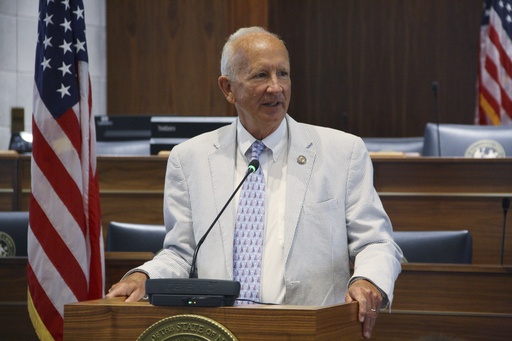RALEIGH, N.C. — On Friday, North Carolina’s Supreme Court confirmed the constitutionality of a law that grants adult survivors of childhood sexual abuse an additional two years to pursue civil damages. The ruling rejected claims that this temporary extension infringed on the constitutional rights of those facing lawsuits that would otherwise be untimely.
This decision arose from a case involving a local school district that was sued by three former students years after an ex-coach was convicted of sexual offenses against players. The court determined that the General Assembly had the authority to introduce a vital aspect of the 2019 SAFE Child Act, which was supported by the then-Governor, Roy Cooper.
Prior to the enactment of this law, victims of sexual abuse who were assaulted before the age of 18 had until the age of 21 to initiate civil claims against their abusers. With the new law, survivors now have until age 28. A key focal point of the court’s review was a provision enabling other victims, whose statute of limitations had expired, to file lawsuits for damages from January 2020 to December 2021.
Advocates for this provision argued that it provided a crucial opportunity for victims to hold their abusers and the institutions that allowed the abuse accountable, additionally giving them a chance to publicly expose their offenders. According to legal documents, more than 250 lawsuits related to child sexual abuse were filed in North Carolina during this limited lookback period.
A divided panel of the state Court of Appeals had previously upheld the two-year extension as constitutional in 2023. The school board’s attorney contended that the lookback provision breached the North Carolina Constitution by undermining fundamental rights that should not be altered retroactively by the legislative body. The attorney also expressed concerns that preserving this litigation period could hinder effective defense strategies due to the elapse of time and loss of pertinent records.
In the majority opinion delivered by Chief Justice Paul Newby, it was clarified that an examination of prior iterations of the state constitution indicated that the existing clause against “retrospective laws” is limited to retroactive criminal laws and specific tax regulations. Moreover, another provision meant to invalidate laws infringing on a person’s “vested rights” was not applicable in this circumstance.
“Our precedents confirm that the General Assembly may retroactively amend the statute of limitations for tort claims,” Newby explained, referring to civil suits aimed at securing financial restitution for harm suffered due to another party’s actions.
The former coach, Gary Scott Goins, had been convicted in 2014 of 17 sex-related offenses and sentenced to a minimum of 34 years in prison. The former student-athletes filed their lawsuit against both the Gaston County Board of Education and Goins in 2020, claiming repeated sexual assaults. Goins was later removed as a defendant in the current lawsuit, as noted in court records.
The state’s legal representatives defended the 2019 law, with Attorney General Jeff Jackson, alongside previous Attorney General and current Governor Josh Stein, lauding the court’s ruling in a release.
Since 2002, 30 states and the District of Columbia have reopened previously expired claims related to child sex abuse, either through limited options or permanent extensions of the claim periods, according to the advocacy organization CHILD USA.
Associate Justice Allison Riggs recused herself from this case, as she was the author of the 2023 Court of Appeals opinion that was mostly upheld. Associate Justice Anita Earls also released her own opinion, which supported the ruling but criticized the majority’s approach in assessing the law’s constitutional validity. Both Earls and Riggs are among the two Democrats on the seven-member court.
Nonetheless, Earls affirmed that “all justices agree that the legislative branches are empowered to enact restorative legislation that allows survivors of child sexual abuse to seek compensation for the harm they experienced at the hands of their abusers and their enablers in civil court proceedings that would otherwise be barred by the statute of limitations.”
This case was one of five related to the SAFE Child Act heard by the Supreme Court during oral arguments in September. Additionally, three more cases saw resolutions on the same day, with one ultimately allowing lawsuits to be filed during the two-year window against both the abuser and associated institutions. This particular case involved allegations against a Catholic layperson from the 1980s, with the Supreme Court overturning a lower court ruling that had previously dismissed two Catholic organizations from the lawsuit. Riggs also abstained from participating in the court’s discussions regarding this matter.



